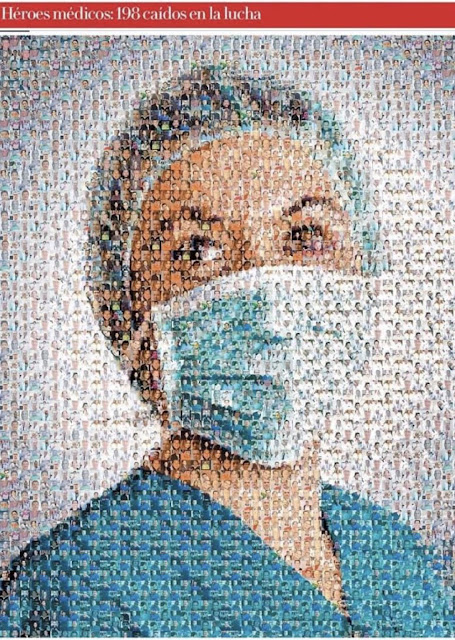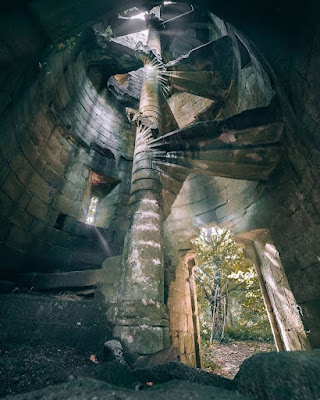SIAP COVID19: Posicionamiento en contra de los pasaportes y vacunas obligatorias
Las personas tenemos sensibilidades, experiencias y comprensiones muy diferentes respecto del sentido de nuestra vida, en general, y del modo de entender la salud, en particular. Las falsas dicotomías surgidas alrededor de la pandemia de covid19 han polarizado el debate y simplificado cuestiones complejas al obviar los matices, la escala de grises, que les acompañan (aquí). Seguir este camino solo nos lleva al deterioro de las relaciones sociales.
Para afrontar colectivamente de la mejor manera los desafíos globales ante los que nos sitúa la pandemia de covid19 necesitamos debates abiertos e inclusivos y no paripés mediáticos de supuestos expertos alineados en una única visión reduccionista, utilitarista, tecnocrática e infantilizadora.
La salida de la pandemia no son las vacunas sino la co-creación colectiva de entornos de cuidado y el diálogo para el mantenimiento de la cohesión social. En este momento de la pandemia, la participación social, el debate no polarizante y la persuasión permitirán, sin duda, mejores resultados que las imposiciones. Además, la obligatoriedad de una medida por parte de la autoridad, cuando se hace con escaso respaldo en pruebas, suele activar la rebeldía (con o sin casusa) de parte de la población, lo que reduce, sin duda, la efectividad de tal medida.
Los más de 300 profesionales sanitarios y no sanitarios participantes desde marzo de 2020 en el Seminario de Innovación en Atención Primaria dedicado a la covid19 (aquí) estamos muy preocupados por la deriva autoritaria de muchos gobiernos de todo el mundo, pero especialmente de los europeos, en las medidas adoptadas en el contexto de la pandemia covid19.
Especialmente nos preocupan:
1/ la implantación del llamado "certificado" o "pasaporte" covid19 y
2/ la obligatoriedad de la vacunación.
Como profesionales, queremos aportar hechos y sosiego para un debate científico y ético que consideramos prácticamente ausente en el momento actual.
España se ha caracterizado por la adhesión a los calendarios de vacunaciones y a todas las recomendaciones sanitarias en mayor grado que otros países como demuestran:
1/ el hecho de que seamos líderes en la Unión Europea en vacunación contra la covid19;
2/ el que una vez retirada la obligatoriedad del uso de la mascarilla en exteriores, muchos ciudadanos continúan llevándola a pesar de mantener la distancia de seguridad, y
3/ el hecho de que ha sido ejemplar la adhesión de la mayoría de la ciudadanía a confinamientos, toques de queda, cierres perimetrales y demás medidas no farmacológicas pese a la más que dudosa eficacia de muchas de ellas en frenar de forma efectiva la diseminación del virus.
Pese a todo ello, vemos atónitos que se plantea la obligatoriedad de la vacunación y se implementa un "pasaporte" o "certificado" para poder acceder al ocio o a la restauración y que, nos tememos, se amplíe al acceso a la educación, al trabajo y a la libre circulación y desplazamientos. Contemplamos con temor la práctica ausencia de debate y la imposición de un planteamiento único que juega con el miedo, los sentimientos de culpa y las medias verdades para imponer el uso de dicho "certificado" o "pasaporte" y, quizá, la vacunación obligatoria.
El propio concepto de "pasaporte" o "certificado" nos parece peligroso porque fomenta la discriminación de las personas sin aportar claros beneficios. Las consideraciones éticas en contra de su implantación ya fueron discutidas en el seno de este Seminario (aquí) y alguna sentencia judicial en contra de exigirlo para el ocio nos da la razón (aquí).
Ahora, contemplamos con estupor cómo la exigencia de este "pasaporte" se une a la exigencia vacunal, incluso para concursar a puestos de trabajo en la Administración Pública (aquí). Deseamos que la denuncia por discriminación interpuesta por el sindicato CCOO en éste caso concreto llegue a buen puerto porque este tipo de exigencias suponen una discriminación desde la ética y, además, carecen de soporte científico puesto que las vacunas hoy disponibles no evitan totalmente la enfermedad ni, sobre todo, reducen suficientemente la circulación del virus.
Hablamos de vacunas que ni siquiera están definitivamente aprobadas por las agencias reguladoras, sólo han sido provisionalmente aprobadas "de urgencia" dada la situación de emergencia pandémica. Vacunas lastradas por una falta de transparencia desde el inicio de su andadura, y que persiste en la actualidad (aquí). Se trata de vacunas que, lamentablemente, no evitan suficientemente la transmisión del virus, especialmente en el caso de la variante delta, actualmente la más frecuente en España. Es decir, las personas vacunadas son capaces de transmitir, de contagiar, el virus ,en muchos casos en la misma medida que las no vacunadas, motivo por el cual los CDC de EEUU han cambiado recientemente su política, instando a los vacunados a tomar exactamente las mismas medidas de seguridad que los no vacunados (aquí).
Se plantea ya, por políticos e industrias con intereses, una tercera dosis aún en contra del criterio tanto de la OMS como de las agencias reguladoras (aquí). Se plantea vacunar a preadolescentes, incluso a la infancia, que tienen una incidencia mínima de covid19 grave o persistente, con una vacuna que, probablemente, proporcione menor inmunidad duradera que la propia infección natural. Es decir, se plantea vacunar a una población, infantil y adolescente, en la que el balance beneficio-riesgo de la vacunación es, probablemente, inferior al de la infección natural. Se dice, además, que la vacunación es la única manera de llegar a la inmunidad de rebaño o colectiva, algo imposible de alcanzar con una vacuna que no evita suficientemente ni la reinfección sintomática ni, muchísimo menos, la transmisión o contagio del virus por parte de los vacunados (aquí).
Por todo lo expuesto, por ética y por ciencia, nos posicionamos en contra del uso del "pasaporte" o "certificado" covid19 y de la vacunación obligatoria y nos gustaría promover con este comunicado el debate sereno y profundo sobre estas cuestiones, abierto a profesionales, expertos, autoridades y población general.
SIAP COVID19: Positioning against compulsory passports and vaccinations
People have very different sensitivities, experiences and understandings of the meaning of our lives in general and of the way we understand health in particular. The false dichotomies that have emerged around the covid19 pandemic have polarised the debate and simplified complex issues by ignoring the nuances, the greyscale, that accompany them. Following this path only leads to the deterioration of social relations.
To collectively face the global challenges posed by the covid19 pandemic in the best way possible, we need open and inclusive debates and not media parades of supposed experts aligned in a single reductionist, utilitarian, technocratic and infantilising vision.
The way out of the pandemic is not vaccines but the collective co-creation of caring environments and dialogue for the maintenance of social cohesion. At this point in the pandemic, social participation, non-polarising debate and persuasion will undoubtedly produce better results than impositions. In addition, the imposition of a measure by the authorities, when done with little evidence, tends to trigger rebellion (with or without cause) in part of the population, which undoubtedly reduces the effectiveness of such a measure.
The more than 300 health and non-health professionals participating in the covid19 Innovation in Primary Care Seminar since March 2020 are very concerned about the authoritarian drift of many governments around the world, but especially in Europe, in the measures adopted in the context of the covid19 pandemic.
We are particularly concerned about:
1/ the introduction of the so-called covid19 "certificate" or "passport", and
2/ the compulsory nature of vaccination.
As professionals, we want to bring facts and calm to a scientific and ethical debate that we consider to be practically absent at the present time.
Spain has been characterised by adherence to vaccination schedules and to all health recommendations to a greater degree than other countries, as shown by:
1/ the fact that we are leaders in the European Union in vaccination against covid19;
2/ the fact that once the obligatory use of masks outdoors has been withdrawn, many citizens continue to wear them despite maintaining the safety distance; and
3/ the fact that the majority of citizens have been exemplary in their adherence to confinements, curfews, perimeter closures and other non-pharmacological measures, despite the more than dubious effectiveness of many of them in effectively curbing the spread of the virus.
Despite all this, we are astonished to see that vaccination is being made compulsory and that a "passport" or "certificate" is being introduced to gain access to leisure or restaurants and that, we fear, it will be extended to access to education, work and freedom of movement and travel. We view with fear the virtual absence of debate and the imposition of a single approach that plays on fear, guilt and half-truths to impose the use of such a "certificate" or "passport" and, perhaps, compulsory vaccination.
The very concept of a "passport" or "certificate" seems to us dangerous because it encourages discrimination against people without bringing clear benefits. The ethical considerations against its introduction have already been discussed in this Seminar and some court rulings against requiring it for leisure have proved us right.
Now, we are astonished to see how the requirement of this "passport" is joined to the vaccination requirement, even to apply for jobs in the Public Administration. We hope that the discrimination complaint filed by the CCOO trade union in this specific case will be successful, because this type of requirement is ethically discriminatory and, moreover, lacks scientific support, since the vaccines available today do not completely prevent the disease and, above all, do not sufficiently reduce the circulation of the virus.
We are talking about vaccines that have not even been definitively approved by the regulatory agencies; they have only been provisionally approved "as a matter of urgency" given the pandemic emergency situation. Vaccines burdened by a lack of transparency from the beginning of their development, and which persists today. Unfortunately, these vaccines do not sufficiently prevent transmission of the virus, especially in the case of the delta variant, currently the most frequent in Spain. In other words, vaccinated people are capable of transmitting, of infecting, the virus, in many cases to the same extent as unvaccinated people, which is why the US CDC has recently changed its policy, urging vaccinated people to take exactly the same safety measures as unvaccinated people.
A third dose is already being considered by politicians and industry interests against the advice of both the WHO and regulatory agencies. There are plans to vaccinate pre-adolescents, even infants, who have a minimal incidence of severe or persistent covid19 , with a vaccine that is likely to provide less long-lasting immunity than natural infection itself. In other words, it is proposed to vaccinate a population, children and adolescents, in which the benefit-risk balance of vaccination is probably lower than that of natural infection. It is also said that vaccination is the only way to achieve herd or collective immunity, something impossible to achieve with a vaccine that does not sufficiently prevent either symptomatic reinfection or, much less, transmission or contagion of the virus by those vaccinated.
For all of the above reasons, for ethical and scientific reasons, we are against the use of the covid19 "passport" or "certificate" and compulsory vaccination and we would like to promote with this communiqué a calm and profound debate on these issues, open to professionals, experts, authorities and the general public.
亚太经社会COVID19:反对强制护照和疫苗接种的立场
自动翻译,抱歉有误。
对于我们生活的意义,特别是对于我们理解健康的方式,人们有非常不同的敏感度、经验和理解。围绕19型病毒大流行出现的错误二分法使辩论两极分化,并通过忽视伴随着这些问题的细微差别、灰度来简化复杂的问题。走这条路只会导致社会关系的恶化。
为了以最好的方式共同面对covid19大流行病带来的全球挑战,我们需要公开和包容的辩论,而不是由所谓的专家在媒体上进行游行,以一种单一的还原主义、功利主义、技术官僚和幼稚的眼光来看待。
这场大流行病的出路不是疫苗,而是集体共同创造关爱的环境和对话,以维护社会的凝聚力。在这个大流行病的时刻,社会参与、非两极化的辩论和说服无疑会比强加于人产生更好的效果。此外,当局在没有什么证据的情况下强行采取某种措施,往往会引发部分民众的反抗(无论有无原因),这无疑会降低这种措施的效果。
自2020年3月以来,参加covid19初级保健创新研讨会的300多名卫生和非卫生专业人员(在此)非常关注世界各地,特别是欧洲的许多政府在covid19大流行病背景下采取的措施的专制倾向。
我们特别关注的是
1/ 采用所谓的covid19 "证书 "或 "护照",以及
2/ 疫苗接种的强制性质。
作为专业人士,我们希望为这场科学和道德的辩论带来事实和冷静,我们认为目前实际上是没有的。
西班牙的特点是比其他国家更遵守疫苗接种计划和所有健康建议,这表现在:1:
1.我们在欧盟国家中,在接种丙型肝炎疫苗方面处于领先地位。
2/ 一旦取消了在户外必须使用口罩的规定,尽管保持了安全距离,许多公民仍继续佩戴口罩;以及
3/ 大多数公民在遵守禁闭、宵禁、周边封闭和其他非药物措施方面堪称典范,尽管其中许多措施在有效遏制病毒传播方面的效果令人怀疑。
尽管如此,我们惊讶地看到,疫苗接种正在被强制执行,"护照 "或 "证书 "正在被引入,以获得进入休闲或餐馆的机会,而且我们担心,它将被扩展到获得教育、工作和行动与旅行的自由。我们对几乎没有辩论和强加单一的方法感到恐惧,这种方法利用恐惧、内疚和半真半假来强行使用这种 "证书 "或 "护照",或许还有强制性的疫苗接种。
在我们看来,"护照 "或 "证书 "的概念本身就很危险,因为它鼓励对人的歧视,却没有带来明显的好处。本研讨会已经讨论了反对引入这种做法的伦理考虑,一些反对要求休闲的法院裁决已经证明我们是正确的。
现在,我们惊讶地看到,这种 "护照 "的要求是如何与疫苗接种的要求结合起来的,甚至在申请公共管理部门的工作时也是如此。我们希望CCOO工会在这一具体案例中提出的歧视申诉能够成功,因为这种要求在道德上是歧视性的,而且缺乏科学依据,因为今天的疫苗并不能完全预防疾病,尤其是不能充分减少病毒的传播。
我们谈论的是甚至还没有被监管机构明确批准的疫苗;鉴于大流行病的紧急情况,它们只是被 "作为紧急事项 "临时批准。疫苗从开发之初就缺乏透明度,这种情况一直持续到今天(这里)。不幸的是,这些疫苗并不能充分防止病毒的传播,特别是对于目前在西班牙最常见的delta变体。换句话说,接种疫苗的人能够传播、感染病毒,在许多情况下,其程度与未接种疫苗的人相同,这就是为什么美国CDC最近改变了政策,敦促接种疫苗的人采取与未接种疫苗的人完全相同的安全措施(这里)。
政治家和行业利益集团已经在考虑第三种剂量,而不顾世界卫生组织和监管机构的建议(这里)。有计划对严重或顽固性covid19发病率极低的青少年前期,甚至婴儿进行疫苗接种,这种疫苗提供的持久性免疫力可能不如自然感染本身。换句话说,建议对儿童和青少年这一人群进行疫苗接种,在这一人群中,接种疫苗的收益与风险平衡可能低于自然感染。还有人说,接种疫苗是实现群体或集体免疫的唯一途径,而这是不可能实现的,因为疫苗既不能充分防止症状性再感染,更不能防止接种者传播或传染病毒(这里)。
基于上述所有原因,出于伦理和科学的考虑,我们反对使用covid19 "护照 "或 "证书 "和强制接种,我们希望通过这份公报促进对这些问题进行冷静和深刻的辩论,向专业人士、专家、当局和公众开放。

















